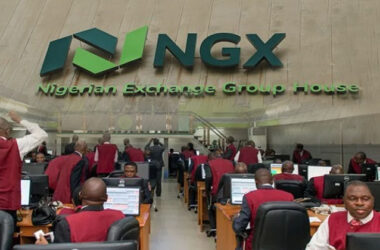For a nation long accustomed to the naira’s volatile dance against major global currencies, recent trends offer a glimmer of hope. The Nigerian naira has, in recent months, shown signs of strengthening and relative stability, sparking cautious optimism about the future of the nation’s currency and its broader economic implications. But is this a genuine turning point, or merely a temporary reprieve in a long history of fluctuations?
Several factors appear to be contributing to this newfound stability. The Central Bank of Nigeria (CBN) has implemented various policy interventions aimed at managing exchange rate volatility and boosting liquidity in the foreign exchange market. Increased transparency in forex policy and a new forex trading framework introduced late last year seem to be yielding positive results. Moreover, a notable increase in crude oil production and relatively stable global oil prices have bolstered Nigeria’s foreign exchange earnings, a crucial element in stabilizing the naira.
The parallel market, often a barometer of real-market sentiment, has also witnessed a significant appreciation of the naira, indicating improved liquidity at the retail end of the market. This narrowing of the gap between the official and parallel market rates is a welcome development, suggesting a more transparent and efficient forex environment. Furthermore, there are reports of growing interest from foreign portfolio investors in Nigeria’s fixed-income market, attracted by relatively high interest rates. These inflows of foreign currency are critical for sustaining stability.
However, it is crucial to temper this optimism with a dose of realism. Nigeria’s economic fundamentals still face significant challenges. The nation remains heavily reliant on imports, and while non-oil exports are receiving attention, they are yet to become a major source of foreign exchange. Inflation, although projected to decline, remains stubbornly high, eroding purchasing power and posing a threat to long-term currency stability. The country’s foreign exchange reserves, while still significant, have seen some depletion due to interventions aimed at stabilizing the naira and funding essential imports.
Analysts also caution that a naira that strengthens without robust economic backing might be unsustainable in the long run, potentially leading to another sharp depreciation. The historical volatility of the naira serves as a reminder that periods of stability can be fragile.
For genuine and lasting stability to take hold, Nigeria needs to pursue comprehensive and consistent economic reforms. Diversifying the economy away from its heavy reliance on oil, boosting local production, and enhancing export competitiveness are paramount. Fiscal discipline and transparent management of foreign exchange are equally crucial to building investor confidence. Addressing structural issues such as inadequate infrastructure, policy inconsistencies, and bureaucratic inefficiencies will create a more enabling environment for businesses to thrive and contribute to long-term economic resilience.
In conclusion, while the recent strengthening of the naira and its relative stability offer encouraging signs, it is too early to declare that long-term stability is definitively on the horizon. The current positive trends, underpinned by policy interventions and improved oil revenues, need to be reinforced by fundamental structural reforms and sustained fiscal discipline. Only then can Nigeria hope to break free from the cycle of currency volatility and secure a stable economic future for its citizens. The coming months will be critical in determining whether this recent progress marks a true turning point or merely a temporary pause in a long and complex economic journey.








